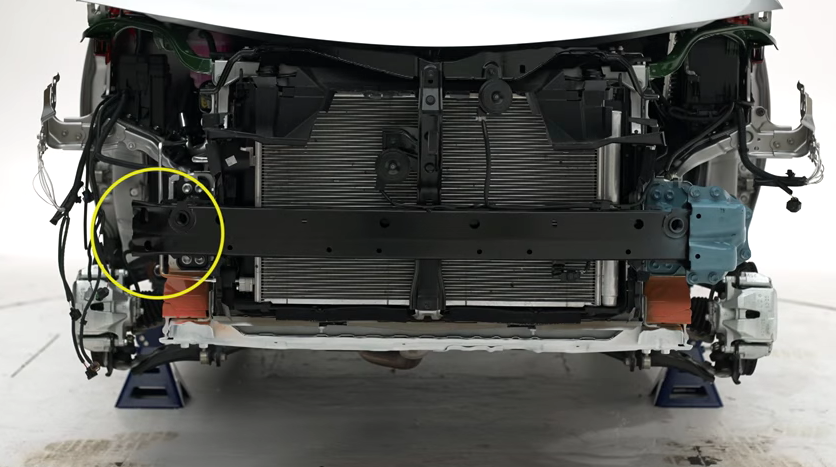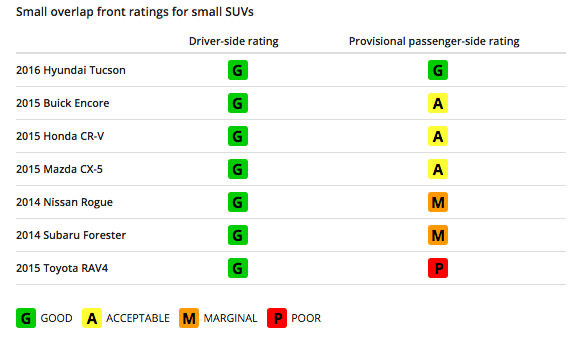Report: Some SUVs Fail To Protect Passengers From Injury In Front-Side Crashes
Vehicle safety technology has evolved to increasingly protect passengers in the event of a collision, but a new report from the Insurance Institute for Highway Safety (the people who crash cars into walls for science) suggests that not all airbag placements are created equal, and that passenger safety devices in the front seats of some SUVs may not offer the same protection as they do for drivers.
Newly release data from IIHS found that some vehicles with good driver-side protection may leave passengers at risk for injury when vehicles crash at 40 miles per hour or more, leading the agency to consider additional passenger-side airbag ratings as part of its Top Safety Pick criteria.
The IIHS looked at seven small SUVs that had already earned “Good” ratings for driver-side safety in the small overlap test — that’s when only one corner of the vehicle collides with something. When researchers looked at the same test for passenger-side safety, only one of the seven vehicles earned a “Good,” with others earning everything from “Acceptable” to “Poor.”
Here are the findings for small overlap tests:
Most of the tested SUVs didn’t perform as well when they were crashed into a barrier on the right side instead of the left. That was even true of models that appeared symmetrical after removing bumper covers and other external components.
“When structural improvements are visible only on the driver side, there are large differences in performance,” Mueller said. “But the inverse is not true.”

Some vehicles do not include structural improvements — designed to protect in the event of a crash — on both sides of the car.
In fact, IIHS says that while some vehicle structure looks the same it doesn’t always perform the same.
“That’s why we can’t rely on visual analysis but need to monitor this issue and possibly begin rating vehicles for passenger-side protection,” Mueller said.
IIHS officials suggest that it’s not unusual for automakers to place greater emphasis on the vehicle frame and structure on the driver’s side of the vehicle, as every vehicle has a driver, but not every operating vehicle has a passenger.
But that shouldn’t necessarily be the case.
“This is an important aspect of occupant protection that needs more attention,” Mueller said. “More than 1,600 right-front passengers died in frontal crashes in 2014.”
Want more consumer news? Visit our parent organization, Consumer Reports, for the latest on scams, recalls, and other consumer issues.


